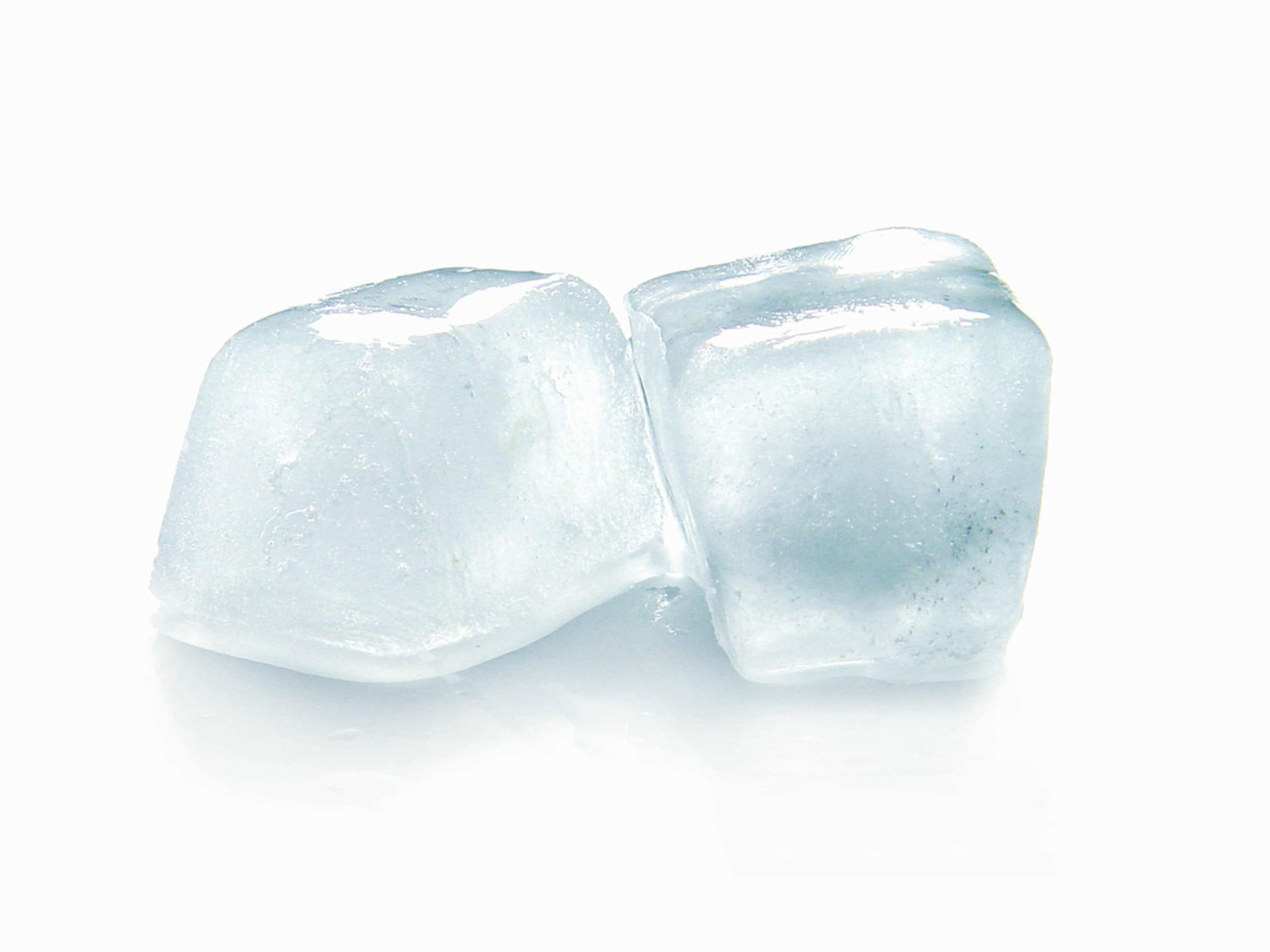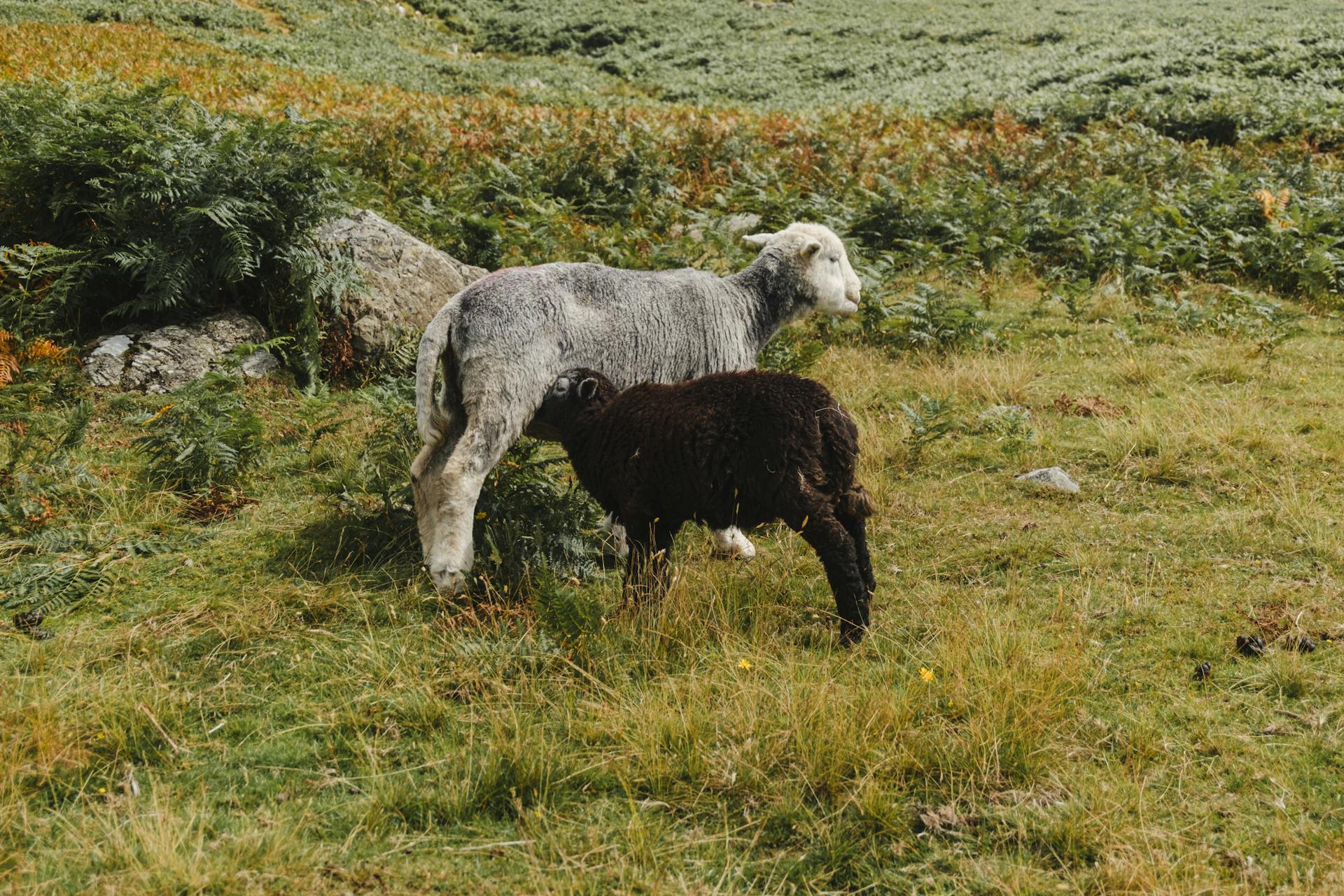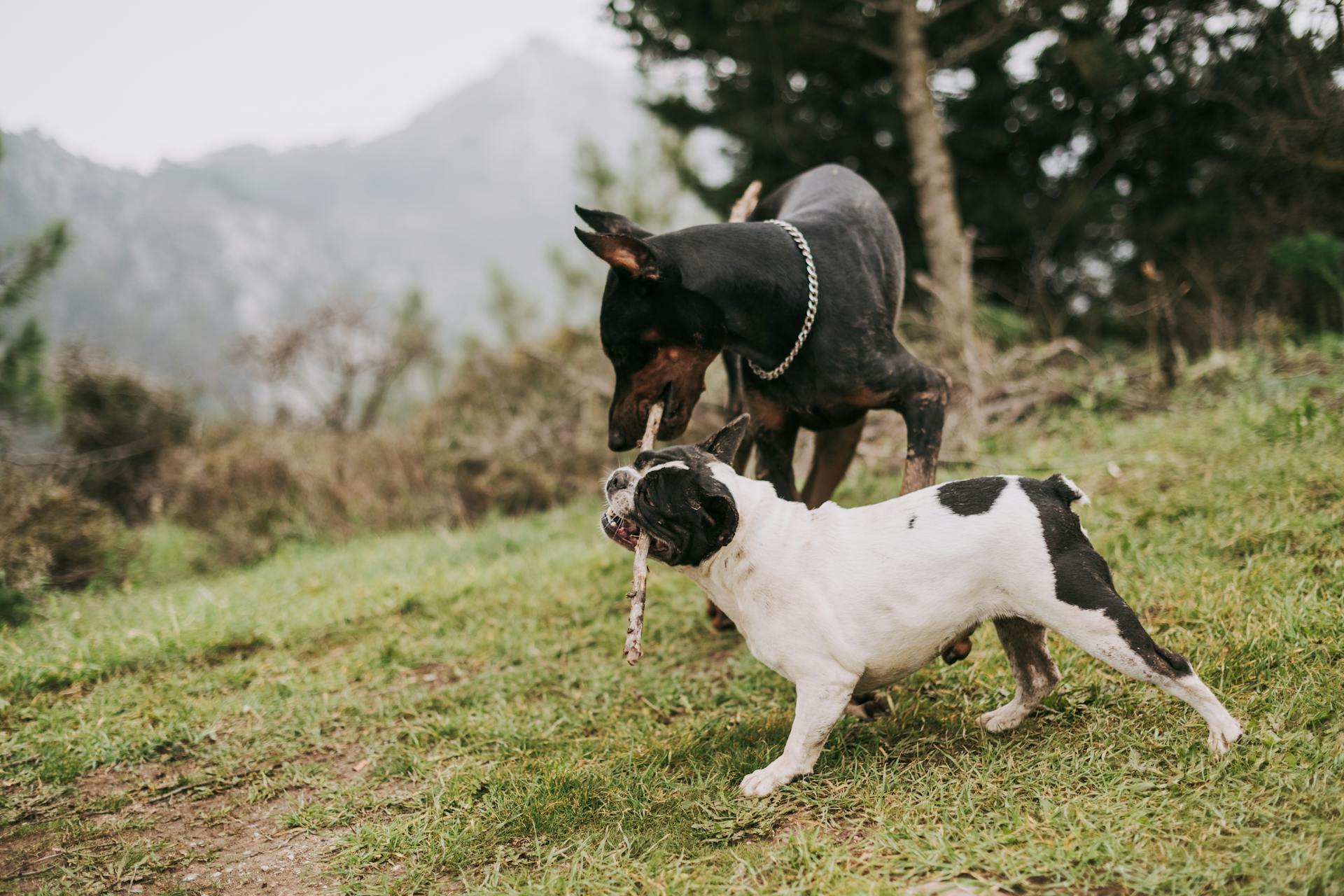
Ice cubes can be a refreshing way to cool down your dog on a hot day, but it's essential to understand the benefits and risks involved.
Giving your dog ice cubes can help lower their body temperature quickly, especially in emergency situations like heatstroke.
However, some dogs may not like the taste or texture of ice cubes, which could lead to a decrease in water intake.
Dogs that drink from a bowl with ice cubes may also be less likely to drink from a bowl without ice cubes.
Explore further: Parasites in Dogs Water Bowl
Hydration and Water Safety
To encourage your dog to drink more water, try changing their water source to a specific bowl or a running water source. This can be a simple yet effective solution.
Some dogs may prefer drinking from a running water source, so don't be afraid to experiment and find what works best for your furry friend. I've seen dogs go crazy for running water, so it's worth a try!
Adding flavor to their water can also be a good idea. A small amount of chicken broth or apple juice can make their water more appealing. Just be sure to use a small amount and not overpower the water.
If you do decide to add flavor, make sure to introduce it slowly to ensure your dog can tolerate it. You can start by mixing a small amount with their regular water and gradually increase the ratio.
If you want to give your dog ice or ice water, be sure to crush the ice cubes into smaller pieces to minimize the risk of choking and dental damage. Ice chips and shaved ice are also great options.
Introduce ice slowly and in moderation, as too much can lead to an upset stomach or dental damage. Always supervise your dog when they're eating ice or drinking ice water, especially the first few times.
Here are some safety tips to keep in mind:
- Crush the ice cubes to minimize the risk of choking and dental damage.
- Introduce ice slowly and in moderation.
- Always supervise your dog when they're eating ice or drinking ice water.
- Consult your vet if you notice any adverse reactions.
Remember, it's always better to err on the side of caution when it comes to your dog's health and safety. If you're unsure about anything, don't hesitate to consult your veterinarian.
Risks and Precautions
Tooth breakage is a risk when dogs eat ice cubes, especially big pieces, which can cause tooth breakage in puppies and older dogs with dental issues.
Chewing on hard substances like ice can cause wear and tear on a dog's tooth enamel, leading to dental issues like sensitivity, tartar accumulation, and gum disease.
Choking is a potential hazard when giving your dog ice cubes, especially if they're small or gobble up food quickly.
To reduce the risk of choking, use smaller ice cubes or purchase small ice cube moulds.
If you suspect your dog is choking on ice, you can try to remove the cube yourself or perform the pet Heimlich maneuver, but it's still essential to take your dog to the vet for evaluation.
Here are some tips to minimize risks:
- Offer ice cubes in moderation.
- Use smaller chunks of ice.
- Let the cubes melt slightly before giving them to your dog.
- Provide ice in moderation.
- Use shaved ice or small ice cubes.
Risks of Eating
Eating ice or drinking ice water can pose some risks for your furry friend. One of the main concerns is tooth breakage, especially for puppies whose teeth are still developing and for older dogs with dental issues.
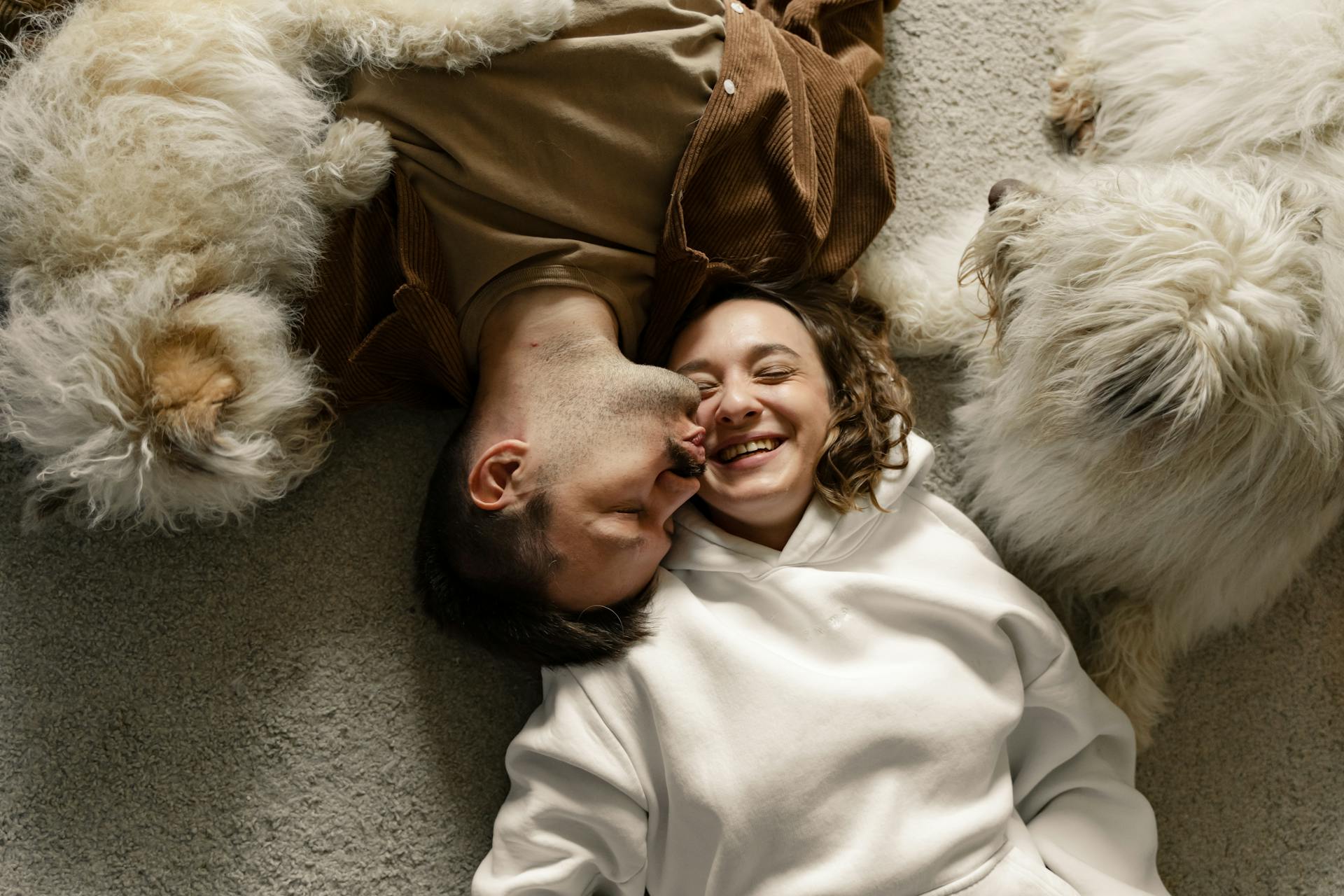
Chewing on hard substances like ice can cause wear and tear on a dog's tooth enamel, leading to dental issues like sensitivity, tartar accumulation, and gum disease. This is because a dog's tooth enamel doesn't regenerate, so once it's damaged, it can't be restored.
A choking hazard is also a possibility, especially if your dog gobbles up food quickly or is a small breed. Large ice cubes can slip down the dog's throat before they're sufficiently chewed.
Here are some potential risks associated with dogs eating ice or drinking ice water:
- Tooth breakage: Higher risk for puppies and older dogs with dental issues.
- Wear on tooth enamel: Can lead to dental issues like sensitivity, tartar accumulation, and gum disease.
- Choking hazard: Especially if your dog gobbles up food quickly or is a small breed.
Stomach Upset Potential
Giving your dog ice cubes may not necessarily upset their stomach, and in some cases, it can even be beneficial. In fact, ice cubes can help reintroduce liquids to your dog following surgery or bouts of vomiting.
Drinking ice-cold water too quickly can actually increase the risk of bloat, a potentially life-threatening condition. Putting ice in your dog's water can help slow their rate of drinking, which may lower this risk.
If this caught your attention, see: Ice Cubes
Are Bad?
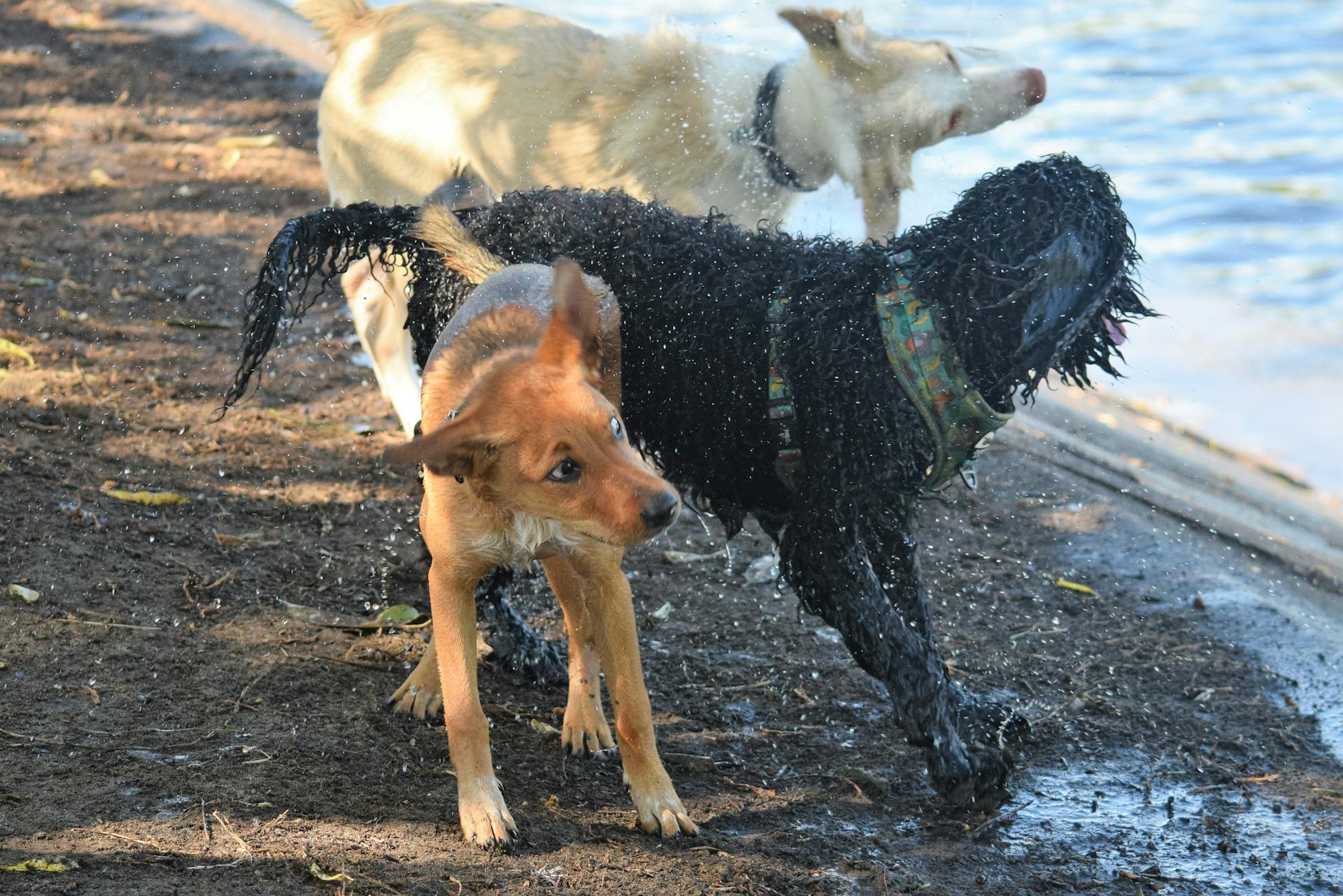
Are Ice Cubes Bad for Dogs?
Ice cubes can be a bit of a double-edged sword when it comes to your furry friend's teeth. They might seem harmless, but there are potential risks to consider.
Chewing on ice cubes can cause tooth breakage, especially for puppies whose teeth are still developing. This can lead to a whole host of dental issues.
For older dogs with dental issues, chewing on ice cubes can cause wear and tear on their tooth enamel, leading to sensitivity, tartar accumulation, and gum disease.
Dogs can choke on ice cubes, especially if they're small or gobble up food quickly. The slippery nature of ice can cause it to slip down the dog's throat before it's sufficiently chewed.
Here are some tips to minimize the risks:
- Offer ice cubes in moderation.
- Use smaller chunks of ice.
- Let the ice cubes melt slightly before giving them to your dog.
If you think your dog's tooth might be broken, it's always best to contact your vet for advice.
How to Safely Give My
If you want to give your dog ice or ice water, there are some important things to keep in mind. You should crush the ice cubes into smaller pieces to minimize the risk of choking and dental damage.
Crushing the ice cubes is a simple step that can make a big difference in your dog's safety. It's also a good idea to introduce ice slowly, letting your dog lick some ice and see how they react before giving them more.
Moderation is key when it comes to giving your dog ice. While it's a great way to help them cool down, too much can lead to an upset stomach or dental damage. You should always supervise your dog when they're eating ice or drinking ice water.
Here are some tips to keep in mind when giving your dog ice:
- Crush the ice cubes into smaller pieces.
- Introduce ice slowly.
- Give ice in moderation.
- Supervise your dog at all times.
If you're unsure about whether to give your dog ice or ice water, or if you notice any adverse reactions, consult your veterinarian. They can provide you with advice that's tailored to your pet's specific needs and conditions.
Frequently Asked Questions
Is it okay for dogs to eat water ice?
Yes, dogs can safely eat water ice, also known as ice cubes, as a way to introduce water slowly and help with hydration. However, it's essential to consult with a veterinarian before offering ice cubes to your dog, especially if they have specific health needs or conditions.
Sources
- https://happytailservet.com/blog/dog-wont-drink-water/
- https://be.chewy.com/can-dogs-eat-ice/
- https://www.akc.org/expert-advice/health/puppy-drinking-enough-water/
- https://www.purina.co.uk/articles/dogs/feeding/what-dogs-eat/can-dogs-have-ice-cubes
- https://www.metlifepetinsurance.com/blog/pet-health/are-ice-cubes-bad-for-dogs/
Featured Images: pexels.com
